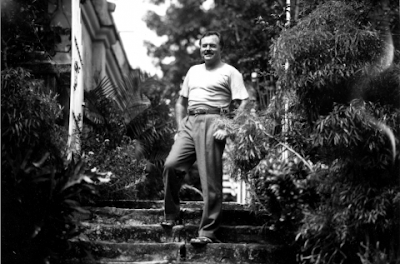In a Barnes & Noble Book Blog, Stephen King presents 20
writing tips. Most famous writers offer ten or perhaps a dozen tips, but as you may have
noticed, King is prolific. I like Stephen King, and he’s a great
storyteller. His memoir, On Writing: A
Memoir of the Craft contains a wealth of wisdom about writing. This list is
much shorter, but all writers can benefit from following his guidelines.
That said, I would quibble with a couple of his points.
First, #10 is too strict. King can write a first draft in less than three months, but
mortals need more time—especially
those who have to pay the mortgage, put food on the table, and run a couple
errands each day. Don’t hurry yourself … but never stop for an extended period.
It’s too easy to put off writing one more day when you've been on a long hiatus.
Until you make a living by writing, I disagree with #13. Few
of us have the luxury of erecting a force field around us when we write. Learn
to write with distractions … otherwise you may never complete an entire novel.
Looking for the perfect writing environment is a sure route to writers-block.
Last, #19 is balderdash. Just because you have driven a car for your entire
life doesn't mean you can join the NASCAR circuit and race at near 200 MPH in
bumper to bumper traffic. Maybe some can learn writing from reading fiction, but I
needed help. I read dozens of books on writing, participated in workshops, and
used a writing coach early on. I still read at least one book a year on the
craft of writing. On Writing by
Stephen King is a good place to start.
 |
| 10th Anniversary Edition |
1. First write for yourself, and then worry about the
audience.
2. Don’t use passive voice.
3. Avoid adverbs.
4. Avoid adverbs, especially after “he said” and “she said.”
5. But don’t obsess over perfect grammar.
6. The magic is in you.
7. Read, read, read.
8. Don’t worry about making other people happy.
9. Turn off the TV.
10. You have three months.
11. There are two secrets to success.
12. Write one word at a time.
13. Eliminate distraction.
14. Stick to your own style.
15. Dig.
16. Take a break.
17. Leave out the boring parts and kill your darlings.
18. The research shouldn’t overshadow the story.
19. You become a writer simply by reading and writing.
20. Writing is about getting happy.
Good advice. I especially like his comment in this interview
that a writer’s goal is “to make him/her forget, whenever possible, that he/she
is reading a story at all.”



















.jpg)




.jpg)
.jpg)







